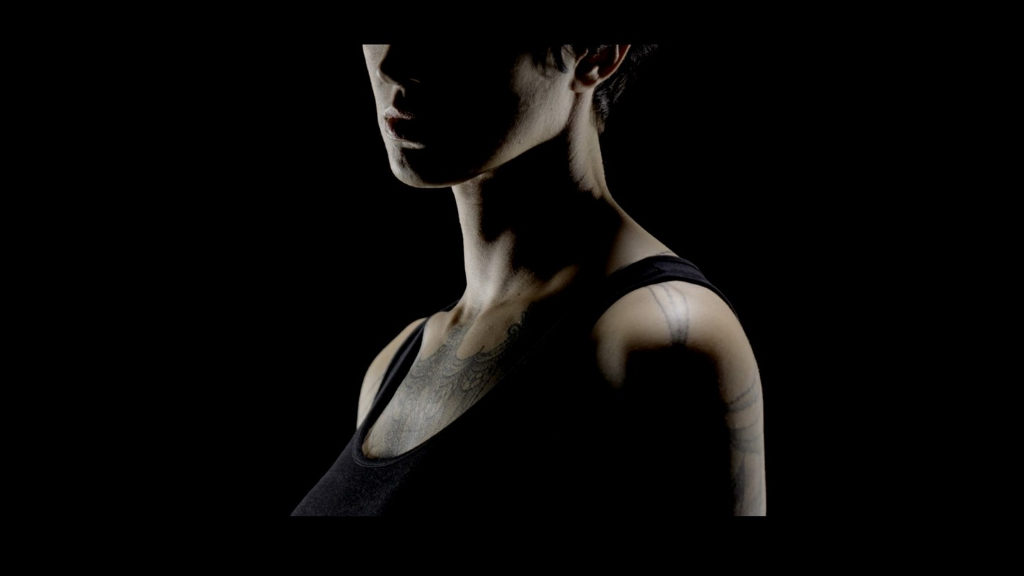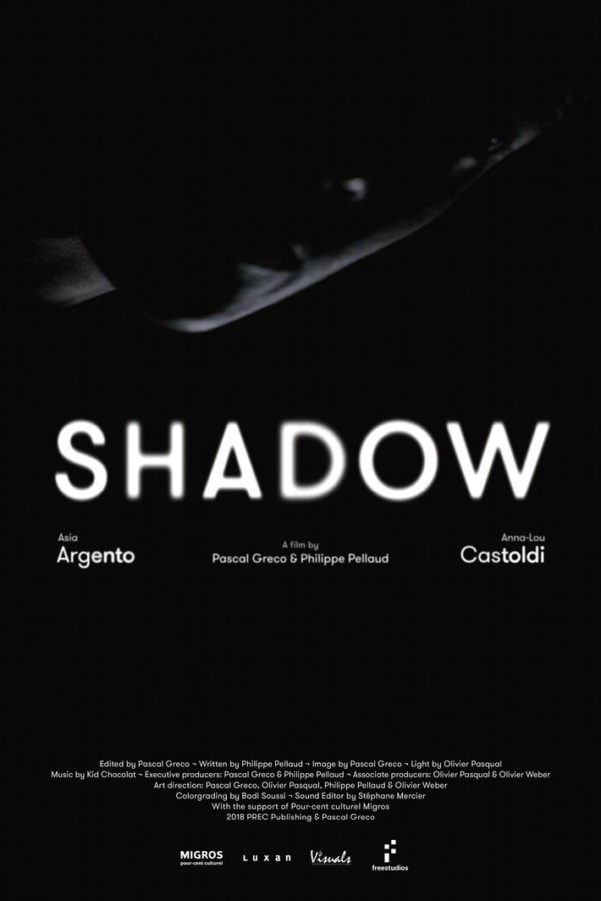Shadow

Running at just over half an hour, Pascal Greco’s Shadow is a sharply condensed film, transporting you deep into a dark and desolate forest where a young girl stands alone, left only with her thoughts and the natural environment that surrounds her. Fear is partnered with dread and insecurity within her, but in her dreamlike state she has a connection with a character enshrouded in a monochrome vision. Is there a link between the two individuals that may unearth a subconscious relationship between reality and the human mind?
An onslaught to the senses that all the while is evidently carefully constructed, Shadow is not Pascal Greco’s first dance. Fantasy worlds and dream states are the director’s speciality, and here he asks viewers to get lost in a film that never loses itself, despite being about a character who is in fact lost herself. It is an artist’s project, the final result of a dream come in to reality. Easily the most striking aspect of this film is Kid Chocolat’s nerve-jangling and hideously unsettling soundtrack, designed to drill deep into the viewer’s core as we see the protagonist’s descent into obscurity and madness. Closure comes as a relief after only thirty minutes, allowing for respite from the intensity of such a sensual experience.
Shadow would not look out of place at exhibition centres like the Tate Modern, due to its unrelentingly brash and heedless approach. Film festivals might be less appreciative, with the emphatically artistic approach no doubt resulting in a mixed reception, as these projects tend to receive. Because of its style, Shadow appears quite conflicted in its narrative and on-screen visual experience, ramping up significant pressure with its soundtrack, but enacting everything slowly on screen. Shots have been decelerated in the edit suite to make a stab at awe-inspiring cinematography, but ultimately it simply doesn’t pair up with the short’s other sensory factors.
This is the problem with the piece – it simply lacks any pleasure in viewing. The fibres that make up its aims are evident, but the real question is whether they all piece together into a powerful piece of art or cinema, and the answer, unfortunately, is no. The viewer, frustratingly, isn’t carried from a starting point to an eye-opening epiphany at its conclusion, which distances the film from the class of cinema and directs it more into the category of art. Indeed, as an art project, Shadow makes for exciting observation, but as a film, other than experimental camera work, there is still quite a bit missing in the void.
Guy Lambert
Shadow is released digitally on Vimeo on 23rd April 2020.

























Facebook
Twitter
Instagram
YouTube
RSS